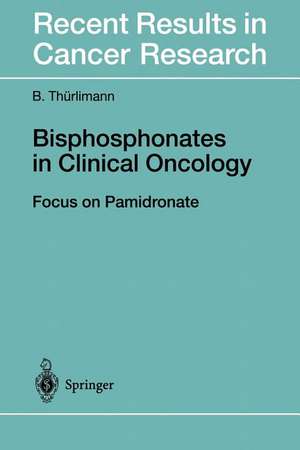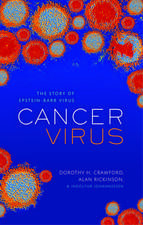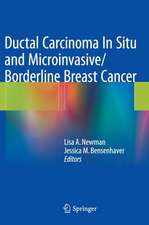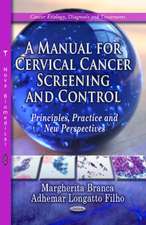Bisphosphonates in Clinical Oncology: The Development of Pamidronate: Recent Results in Cancer Research, cartea 149
Autor Beat Thürlimannen Limba Engleză Paperback – 15 sep 2011
Din seria Recent Results in Cancer Research
- 5%
 Preț: 845.19 lei
Preț: 845.19 lei - 5%
 Preț: 191.70 lei
Preț: 191.70 lei - 5%
 Preț: 782.46 lei
Preț: 782.46 lei - 5%
 Preț: 913.76 lei
Preț: 913.76 lei - 5%
 Preț: 919.23 lei
Preț: 919.23 lei - 5%
 Preț: 400.28 lei
Preț: 400.28 lei - 15%
 Preț: 490.42 lei
Preț: 490.42 lei - 5%
 Preț: 703.83 lei
Preț: 703.83 lei - 5%
 Preț: 721.05 lei
Preț: 721.05 lei - 5%
 Preț: 709.35 lei
Preț: 709.35 lei - 5%
 Preț: 711.15 lei
Preț: 711.15 lei - 5%
 Preț: 710.60 lei
Preț: 710.60 lei - 5%
 Preț: 713.33 lei
Preț: 713.33 lei - 5%
 Preț: 361.80 lei
Preț: 361.80 lei - 5%
 Preț: 712.60 lei
Preț: 712.60 lei - 5%
 Preț: 371.10 lei
Preț: 371.10 lei - 5%
 Preț: 721.96 lei
Preț: 721.96 lei - 5%
 Preț: 716.84 lei
Preț: 716.84 lei - 5%
 Preț: 356.32 lei
Preț: 356.32 lei - 5%
 Preț: 719.74 lei
Preț: 719.74 lei - 5%
 Preț: 717.56 lei
Preț: 717.56 lei - 5%
 Preț: 359.60 lei
Preț: 359.60 lei - 5%
 Preț: 706.41 lei
Preț: 706.41 lei - 5%
 Preț: 717.73 lei
Preț: 717.73 lei - 5%
 Preț: 719.19 lei
Preț: 719.19 lei - 5%
 Preț: 705.32 lei
Preț: 705.32 lei - 5%
 Preț: 718.29 lei
Preț: 718.29 lei - 5%
 Preț: 717.20 lei
Preț: 717.20 lei - 5%
 Preț: 711.15 lei
Preț: 711.15 lei - 5%
 Preț: 712.25 lei
Preț: 712.25 lei - 5%
 Preț: 710.96 lei
Preț: 710.96 lei - 5%
 Preț: 378.97 lei
Preț: 378.97 lei - 5%
 Preț: 1089.68 lei
Preț: 1089.68 lei - 5%
 Preț: 361.06 lei
Preț: 361.06 lei - 5%
 Preț: 712.25 lei
Preț: 712.25 lei - 5%
 Preț: 715.55 lei
Preț: 715.55 lei - 5%
 Preț: 716.84 lei
Preț: 716.84 lei - 5%
 Preț: 720.68 lei
Preț: 720.68 lei - 5%
 Preț: 707.86 lei
Preț: 707.86 lei - 5%
 Preț: 732.01 lei
Preț: 732.01 lei - 5%
 Preț: 715.91 lei
Preț: 715.91 lei - 5%
 Preț: 723.05 lei
Preț: 723.05 lei - 5%
 Preț: 369.10 lei
Preț: 369.10 lei - 5%
 Preț: 709.35 lei
Preț: 709.35 lei - 5%
 Preț: 712.60 lei
Preț: 712.60 lei - 5%
 Preț: 711.52 lei
Preț: 711.52 lei - 5%
 Preț: 719.38 lei
Preț: 719.38 lei - 5%
 Preț: 709.14 lei
Preț: 709.14 lei - 5%
 Preț: 710.06 lei
Preț: 710.06 lei - 5%
 Preț: 724.70 lei
Preț: 724.70 lei
Preț: 706.77 lei
Preț vechi: 743.97 lei
-5% Nou
Puncte Express: 1060
Preț estimativ în valută:
135.26€ • 140.69$ • 111.66£
135.26€ • 140.69$ • 111.66£
Carte tipărită la comandă
Livrare economică 14-28 aprilie
Preluare comenzi: 021 569.72.76
Specificații
ISBN-13: 9783642641480
ISBN-10: 3642641482
Pagini: 132
Ilustrații: XIV, 113 p.
Dimensiuni: 155 x 235 x 7 mm
Greutate: 0.2 kg
Ediția:Softcover reprint of the original 1st ed. 1999
Editura: Springer Berlin, Heidelberg
Colecția Springer
Seria Recent Results in Cancer Research
Locul publicării:Berlin, Heidelberg, Germany
ISBN-10: 3642641482
Pagini: 132
Ilustrații: XIV, 113 p.
Dimensiuni: 155 x 235 x 7 mm
Greutate: 0.2 kg
Ediția:Softcover reprint of the original 1st ed. 1999
Editura: Springer Berlin, Heidelberg
Colecția Springer
Seria Recent Results in Cancer Research
Locul publicării:Berlin, Heidelberg, Germany
Public țintă
Professional/practitionerCuprins
Physiology and Pathophysiology of Bone.- Natural History of the Skeleton.- Cortical Bone.- Trabecular Bone.- Composition of Bone.- Bone Cells.- Factors Regulating Calcium Homeostasis and Bone Resorption/Bone Formation.- References.- Bone Resorption.- Mechanisms of Local Bone Resorption.- References.- Bone Formation.- Cells of the Osteoblast Lineage.- Osteocalcin.- Other Bone Matrix Proteins.- Bone Mineralization.- References.- Factors Regulating Bone-resorbing Cells and Bone-forming Cells.- Parathyroid Hormone.- Calcitonin.- Vitamin D3.- Prostaglandins.- Interleukin-1.- Tumor Necrosis Factor and Lymphotoxin.- Interleukin-4.- Interleukin-6.- ?-Interferon.- Colony-stimulating Factors.- Osteoclast-forming Factor.- References.- Factors Regulating Bone Formation.- Transforming Growth Factor ? (TGF- ?).- Fibroblast Growth Factors.- Platelet-derived Growth Factor.- Bone Morphogenetic Proteins.- Insulin-like Growth Factors.- References.- Pharmacological Treatment of Bone Disorders.- Estrogens and Antiestrogens.- Calcium.- Fluoride.- Vitamin D3/Calcitriol.- Phosphate Therapy.- References.- Bisphosphonates.- Pamidronate: From a Detergent in Washing Powder to a Registered Drug.- References.- Chemical Structure and Preclinical Evaluation.- Chemical Structure.- Biological Effects.- Pharmacokinetics.- Distribution.- References.- Hypercalcemia of Malignancy.- Magnitude of the Problem.- Pathogenesis.- Mediators.- Treatment.- Rehydration and Supportive Care.- Plicamycin (Mithramycin).- Dialysis.- Bisphosphonates.- Other Bisphosphonates.- Gallium Nitrate.- Cisplatin.- References.- Malignant Osteolytic Bone Disease.- Magnitude of the Problem.- Interdisciplinary Management.- Etidronate.- Oral Formulations of Second- and Third-generation Bisphosphonates.- References.- Pamidronate.-Pharmacokinetics of Pamidronate in Patients with Bone Metastases.- References.- Pamidronate for Pain Control in Patients with Malignant Osteolytic Bone Disease: A Prospective Dose-Effect Study.- Patients and Methods.- Results.- Discussion.- Conclusion.- References.- A Prospective, Randomized, Dose-finding Study of Pamidronate in Patients with Malignant Osteolytic Bone Disease.- Patients and Methods.- Statistical Analysis.- Results.- Patients Characteristics.- Properties of LASA Scales and PSC.- Efficacy (LASA).- Efficacy (PS, PSC, and Use of Analgesics).- Efficacy (Laboratory Values).- Treatment Duration.- Toxicity and Side Effects.- Multivariate Analysis.- Conclusion.- References.- Pamidronate Versus Controls in Patients with Metastatic Breast Cancer and Bone Metastases.- Pamidronate for Inhibition of Bone Progression in Patients with Advanced Breast Cancer: A Randomized, Multicenter Phase-III Trial.- Patients and Methods.- Results.- Discussion.- References.- Aredia in the Indication of Osteolytic Bone Metastases of Breast Cancer: A Model for Evaluation of Cost-Benefit.- References.- Prospective, Randomized, Double-blind, Dose-finding Study in Patients with Malignant Osteolytic Bone Metastases and Pain: 60 mg vs. 90 mg Pamidronate.- Aim of the Study.- Study Design.- Treatment.- Statistical Considerations.- Patient Characteristics.- Results.- Pain Intensity.- Responders/Nonresponders.- Pain Improvement.- Pain Frequency.- General Well-being.- Pain Score.- Performance Status.- Analgesic Score.- Total Bone Mineral Density.- Correlation of Results from Selected End Points.- Pain Intensity and Bone Mineral Density.- Correlation of Bone Mineral Density and Diagnosis.- Discussion.- References.- Cost-Effectiveness Analysis of Pamidronate Treatment in Patients with Advanced Malignant Osteolytic Bone Disease: SG 110/93 Plus.- Patients and Methods.- Results.- Conclusion.- Recent Developments and Future Directions.- Ibandronate.- Pamidronate.- Adjuvant Bisphosphonate Therapy.- Future Directions.- References.
Textul de pe ultima copertă
This book provides a clinically oriented overview on the patho-physiological background and the use of bisphosphonates in oncology. The clinical development of pamidronate to treat tumor-induced hypercalcemia and malignant osteolytic bone disease is demonstrated, as well as the results of pivotal studies. New important findings on how to best use pamidronate in certain indications are given and put in perspective. The author discusses patient management guidelines as well as pharmaco-economic aspects important for the readers.
Caracteristici
Important pathophysiological background of bone complications Treatment possibilities












